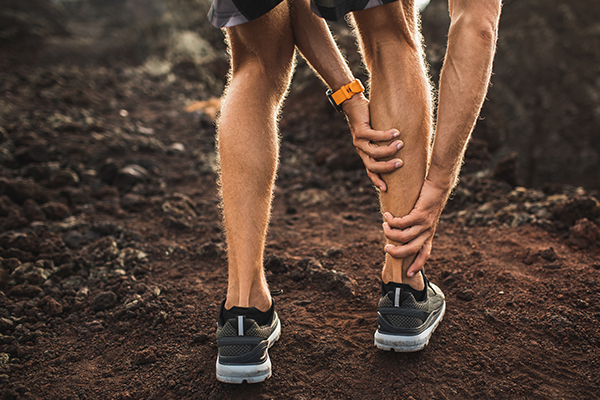How to Keep Cramps From Ruining Your Run

Running cramps have the power to take you out of your run — physically and mentally — and cause you to question the endeavor altogether.
After all, you took up running to feel good, not to spend half of your workout doubled over with running cramps.
If you’ve been struggling with running cramps, don’t throw in the towel just yet.
Once you understand the different types of running cramps, it’s possible to avoid the factors that cause them.
1. Side-Stitch Running Cramps
The side-stitch running cramp, a.k.a. exercise-related transient abdominal pain (ETAP), is characterized by a stabbing, pinching, or tugging sensation along the ribs.
Most runners experience this running cramp at some point in their training, but research shows that side stitches are more common among younger athletes and people who exercise less frequently than their peers.
Side-stitch running cramps have a few probable causes, says Elanit Sellers, CPT.
“Sometimes it’s from an exhausted diaphragm, she says. “Sometimes it’s from a weak core. And sometimes it’s from drinking too much water or eating too much food before heading out for a run.”
How to Prevent Side-Stitch Running Cramps
Prone to this type of running cramp? Try lengthening the amount of time between your last meal and your run.
Make sure you’re following a training program that gradually builds your cardio-respiratory endurance and incorporates strength training that targets your core.
Beachbody’s 30 Day Breakaway, which includes treadmill-friendly running workouts and resistance training, is an excellent option for beginners.
2. Intestinal Distress Running Cramps
If your running cramps typically involve an urgent trip to the restroom, your last meal is the likely culprit, says Chrissy Carroll, RD and USAT Level I Triathlon Coach.
“When you are running, your body diverts blood flow away from the digestive system to your working muscles, which makes it a bit tougher to digest,” she says. “This, coupled with the jostling movement of runs, can often cause some stomach upset.”
Plus, not all calories are created equal when it comes to your gut.
“High-fat products, high-protein products, and products with certain sugar alcohols or artificial sweeteners can all lead to stomach upset in certain individuals,” Carroll adds.
How to Prevent Intestinal Distress Running Cramps
To avoid running cramps accompanied by intestinal distress, look to easy-to-digest, carb-based fuel for your runs.
“A banana is usually a good snack before a run,” Sellers says.
Just be sure to allow at least 30 minutes (or longer, if that works for you) between snacking and lacing up your running shoes.
And while it’s important to stay hydrated throughout the day, don’t chug your water bottle right before a workout.

3. Muscle Running Cramps
According to Carroll, muscle running cramps (e.g., a seized-up calf or a spasming hamstring) typically have less to do with what you’re eating and drinking and more to do with how you’re running.
“Muscle cramps — despite popular perception that they must be caused by hydration or electrolytes — are typically caused by neuromuscular fatigue,” she says. “Of course, significant dehydration or extreme sodium losses may impact cramping risk, but in most research, small differences in hydration and electrolytes have not been linked to cramping during runs.”
This explains why you’re more likely to cramp up on a run that’s abnormally longer or faster.
How to Prevent Muscle Running Cramps
To prevent running cramps (as well as injury, burnout, and general frustration), increase the length and intensity of your runs gradually.
If you’re unsure how to structure your training, an expert-designed program like 30 Day Breakaway will guide you as you steadily build the strength, stamina, and confidence needed to run a 5k.
“Also, make sure you’re warming up your muscles before heading out and ease your way into your pace,” Sellers says. “It helps the onset of muscle cramps when your first mile is slower than your second.”
If you get hit with a running cramp mid-run, a quick stretch may offer some relief.
